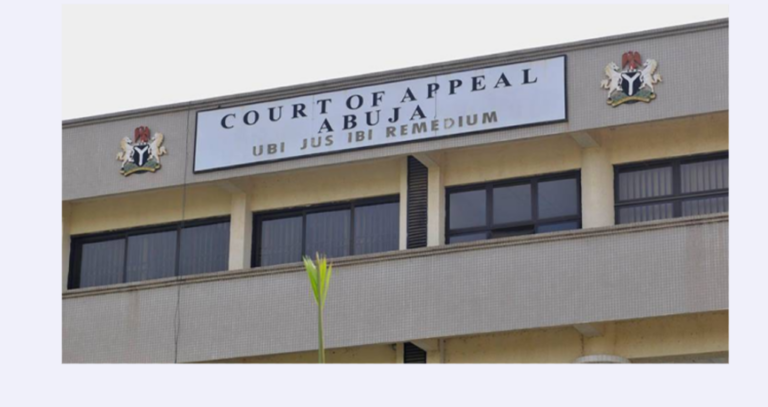
Your Political Party Means Nothing To Kidnappers
By Wande Ojo
The savage killing of Nelson Adepoyigi by his beastly abductors has once again underscored our collective vulnerability. The late Adepoyigi was a member of the All Progressives Congress in Ondo State. Adepoyigi was not an ordinary member of the ruling party. He was the Ward 5 chairman of the party in Ifon, Ose Local Government Area of the state.
The deceased was abducted in front of his house in Ifon on Monday, May 12, 2025. His abductors demanded a huge sum of N100 million as ransom for his freedom. His family members and friends were able to raise only N5 million. But N5 million was not enough to satiate the greed of the beasts.
The jackals detained the two conveyors of the ransom, and made a fresh demand of N30 million for the freedom of their three victims. The animals later freed the two ransom bearers, and, sadly, informed them of the killing of Adepoyigi. The APC chieftain was reportedly shot dead.
The warning from the gruesome fate of Adepoyigi is that the heaven that is falling in the Sunshine state is not a matter of one person. It is a matter of all. Rain does not discriminate. It drenches whoever walks in it. The APC membership of Adepoyigi could not save his life from the vicious grips of the kidnappers and death. This has demonstrated the thoughtlessness of my-party-is-my-party sentiment. It has also shown why fidelity to the society should be higher than loyalty to your party or individuals in government.
Kidnappers and other evil doers are not interested in the political party identity of their victims. Therefore, there shouldn’t be any hesitation by anyone, irrespective of political affiliations, to say the truth to power and point to the dirt in the armpits of those we elected to run our corporate affairs. It is about the welfare of the polity.
Those that are beating the drum of sycophancy for the leaders should realise their unwitting culpability in the death of Adepoyigi and other compatriot-victims of kidnapping. Also, leaders who are dancing to the drumbeats of sycophancy should realise the danger in doing so. A society cannot be wallowing in self-deceit and expect any developmental miracle to happen.
A fellow in the Lucky Aiyedatiwa government once said the government could not leave the Alagbaka area to provide security for the other parts of the state. Another fellow in the government blamed victims of kidnapping for not making efforts to ensure their personal security. These are the characters appointed to advise the governor. One can imagine the quality of their advice and the kind of pictures of the security situation they are painting before the governor. Where then is the sincerity of the reported government efforts to tackle the challenge?
Intellectualising the security situation in the country will afford an adequate and functional understanding of the problem. It is the potential economic benefits that lure individuals into committing crimes. Several theories and models in economics and criminology have explained this. One of the theories relevant to the argument of this piece is the Rational Choice Theory. The proposition of the theory is that individuals weigh the costs and benefits of committing a crime just like any other economic decision. If the expected financial gain from a crime exceeds the expected cost such as punishment and risk of getting caught, a rational individual might choose to commit it.
Another theory that is relevant here is Becker’s Economic Theory of Crime.
The theory was developed by economist Gary Becker in 1968. According to this theory, criminals act rationally and will commit crimes when the expected utility is greater than that from legal activities. Also, the Opportunity Cost Model states that crime becomes more attractive when legitimate economic opportunities are scarce. High unemployment or low wages may make criminal activity relatively more lucrative.
The situation in the country aligns with the tenets of these theories. The financial gain from crimes in Nigeria is far more than the cost. What criminals are making from their illegal activities is greater than what those involved in legal activities are making. That is why kidnapping has transformed into a big business in Nigeria. Statistics, according to Comrade Wale Oshun, showed that kidnappers collected nothing less than N2.2 trillion as ransom in 2024. Oshun is the lead convener of the Yoruba Assembly, a coalition of self-determination groups in the Southwest.
The business of kidnapping is drawing its strength from the weakness of the Nigerian system. Economic desperation, corruption, lack of effective government response, unemployment, widespread poverty, and a changing value system have been identified as the fuel of the menace.
But it is the opinion of this writer that the greatest contributory factors are corruption and lack of effective government response. There is corruption at various levels of government. This unsavoury development has created an environment where kidnappers and other criminals operate with impunity.
Prince Eniola Ojajuni, the president of Afenifere National Youth Council, was abducted some months ago. He was freed by his kidnappers after spending a couple of days in their den. Ojajuni made a revelation that pointed to the contribution of corruption to the problem. According to him, ransoms were paid close to checkpoints before he was finally released by the kidnappers. Could it be said that the security operatives at the checkpoints were not aware of the activities of the criminals?
Corruption has deprived the security agencies of having access to sophisticated equipment. Recently, a top security agent disclosed to journalists in Akure that weapons in the hands of criminals are more sophisticated than those in the hands of security agents in the country. Is it not disturbing that no security agency in Ondo State has a drone to monitor the movements of kidnappers and other criminals? Sufficient attention is not being paid to the communication component of the battle against criminality.
There is weak law enforcement and lack of accountability. Criminals, especially kidnappers, are not made accountable for their evil deeds. This factor has worsened the problem. Until the cost of engaging in criminal activities in Nigeria exceeds the gain, crimes such as kidnapping will remain a hard nut to crack.
It is well!


